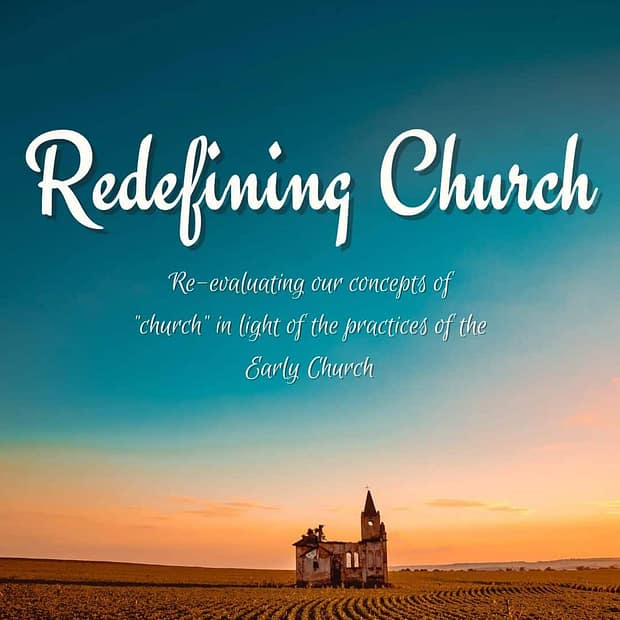At the end of Acts 2, we see a formula for the way that the Early Church operated – eight principles that underpinned a community of believers whom “the Lord added to their number daily those who were being saved” (Acts 2:47). Last week we saw how these early believers devoted themselves to the apostles’ teaching of the Gospel of Jesus Christ. This week, we’ll be looking at the Early Church’s devotion to fellowship – and how our modern concept of fellowship has been watered down over the centuries.
Read: Acts 2:42: All the believers devoted themselves to the apostles’ teaching, and to fellowship, and to sharing in meals (including the Lord’s Supper), and to prayer. (NLT).
When Luke writes about fellowship in Acts 2, the word that he uses is the Greek word koinōnía, which means “to share in, participation, communion, fellowship”. It is a word that can also be translated as “partnership”.
In the modern-day church, we may be familiar with the idea of “fellowshipping” with each other on a Sunday morning, but the twenty-first-century interpretation of the word fellowship has lost many of the connotations of its first-century Greek counterpart.
Google the word fellowship, and you’ll be presented with this definition: “friendly association, especially with people who share one’s interests.” Notice that there’s no mention of sharing, participation, or partnership. Over the course of two millennia, fellowship has gone from being a very close sense of community, unity, and togetherness to a mere “friendly association.”

We can see the impact of the watering down of the concept of fellowship in our churches as well as in wider society. Fellowship at church may be seen in the mingling around over coffee and biscuits after the service, and, for some but certainly not all, getting together midweek in small groups for a Bible study or “home group”.
We still consider this to be fellowship – but would the earliest believers agree with our terminology? It’s true that even watered-down ideas of fellowship create a measure of community that may be missing in society as a whole, but should we be satisfied with settling for less than what the Early Church modelled?
Fellowship was a Priority
For the Early Church, fellowship was a priority, and it didn’t necessarily mean a bunch of Christians gathering together in the same place. Fellowship for these early, devoted believers was about community. It was about togetherness, partnership, sharing burdens and responsibilities, building close relationships – not just with one or two people, but with the whole community.
These people wouldn’t have been content to go Sunday to Sunday without seeing – or even thinking about – others in their fellowship the way that the modern church frequently do. They shared a closeness that today would seem alien, or even intrusive. They would have prayed together, worshipped together, eaten together, done things to help one another. The devotion to these community-building behaviours created a unity that enabled them to withstand persecution when it came – and it made them stand out to non-believers. L
uke writes that “the Lord added to their number daily those who were being saved”, and whilst this may be in part down to them sharing the Gospel truth with others, part of their witness was undoubtedly in their visible fellowship and unity.
Preach the gospel, and, if necessary, use words!
St Francis of Assisi
St Francis of Assisi wrote that Christians should preach the gospel and if necessary use words. This necessarily causes us to pause and ask the question of ourselves and the fellowship (church) to which we belong: am I, and are we, living in such a way that we embody the Gospel?
Fellowship, as we understand it now, is a vital part of what it means to be the church, the bride of Christ, and even our watered-down understanding of it can be a witness to non-believers. But to return to the model of church that the earliest believers embodied, we need to start to question our understanding of what it really means to fellowship with one another and how challenging ourselves to be more like the Early Church might transform our communities.
The Eight Concepts of Redefining Church (Quick Links)
- Concept 1: Devotion to the Teaching of the Gospel of Jesus Christ
- Concept 2: Devoted to Fellowship
- Concept 3: Devotion to Breaking of Bread and Prayer
- Concept 4: Togetherness
- Concept 5: Real Community and Sharing
- Concept 6: All-Encompassing Faith
- Concept 7: With Glad and Sincere Hearts
- Concept 8: Praise God

Thought provoking! Thank you for sharing this wisdom and insight!